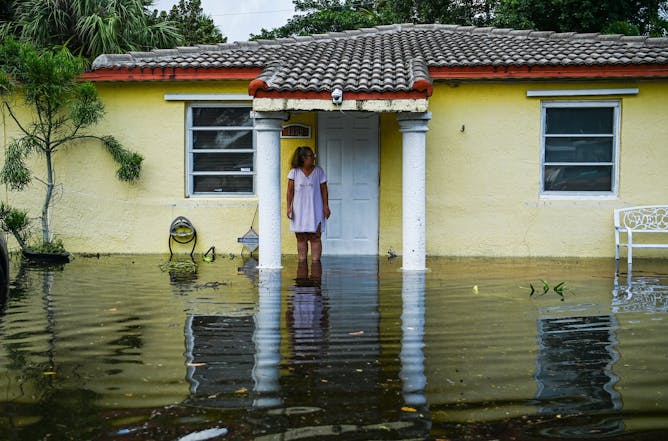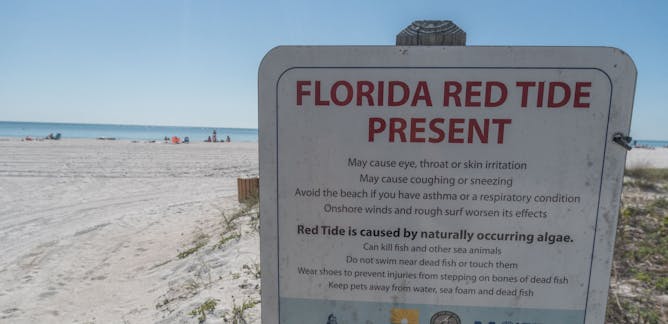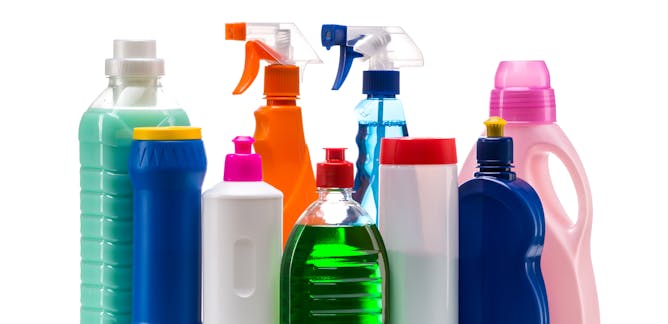|
|
|
|
For people curious about substances found in a relatively recent wave of products derived from marijuana – specifically delta-8 THC and delta-10 THC – University of South Carolina researchers Prakash and Mitzi Nagarkatti offer a thorough and naunced explainer. They write that these two chemicals, which are less psychoactive than other forms of THC, “hold great promise” for a variety of medical conditions, but they offer warnings as well, underscoring the importance of distinguishing among the active chemicals in marijuana.
As a reader of this newsletter, you’re no doubt well aware that global warming is raising the risk of extreme weather, such as the deluge that pounded the Fort Lauderdale, Florida, area in April. As Smitha Rao, an assistant professor of social work at The Ohio State University, points out, low-wage workers, older adults and other vulnerable people who live in low-lying areas are at greatest risk of harm from flooding in the U.S. She writes about her research showing which households, such as low-income ones and ones with children, are less prepared for disasters and offers some examples of communities devising ways to improve disaster preparedness for
higher-risk people.
Our editors covered a few other interesting studies this past week, including one showing the prevalence of harmful chemicals in everyday cleaning products; the shrinking habitat of Asian elephants and how an old fossil, thought to be a Neandertal jawbone, raises new questions over when our species Homo sapiens first roamed in Europe.
Also in this week’s science news:
If there’s a subject you’d like our team of science editors to investigate, please reply to this email.
|

|
Martin La Monica
Director of Editorial Projects and Newsletters
|
|

Thousands of cannabis-derived products are now on the market.
skodonnell/E+ via Getty Images
Prakash Nagarkatti, University of South Carolina; Mitzi Nagarkatti, University of South Carolina
Researchers are working to determine how and which cannabis products can help those suffering from chronic pain or serious illness. But science is having a hard time keeping up with the booming market.
|

The hardest-hit homes in Florida’s mid-April flooding were in modest neighborhoods in low-lying areas.
Chandan Khanna/AFP via Getty Images
Smitha Rao, The Ohio State University
Nationally, 57% of the population says they’re not prepared for a flood disaster. Surveys and disasters show that those most at risk are least prepared.
|

Candidiasis is a severe fungal infection that can spread easily in medical facilities.
Atlas of Pulmonary Pathology/Flickr
Jeffrey Gardner, University of Maryland, Baltimore County
Multidrug-resistant fungal infections are an emerging global health threat. Figuring out how fungi evade treatments offers new avenues to counter resistance.
|
|
|

Chris Impey, University of Arizona
Artificial intelligence tools are making waves in almost every aspect of life, and astronomy is no different. An astronomer explains the history and future of AI in understanding the universe.
| |

Brad Reisfeld, Colorado State University
The tiny organisms that cause harmful blooms of algae can have a big impact on your trip to the shore. A toxicologist explains what causes these events and how to keep people and pets safe.
|

Katherine A. Foss, Middle Tennessee State University
Polio vaccines have been a massive public health victory in the US. But purely celebratory messaging overlooks the ongoing threat if vaccination rates fall.
| |

Jeremy P. Shapiro, Case Western Reserve University
A psychologist explains how opponents of climate policies use a common thinking error to manipulate the public – and why people are so susceptible.
|

Robin Dodson, Boston University; Megan R. Schwarzman, University of California, Berkeley; Ruthann Rudel, Northeastern University
Manufacturers don’t usually have to disclose what’s in products like shampoo and household cleaners, but a new study finds that these products can contain hazardous ingredients.
| |

Ying Xu, University of Michigan
Children learn more science when they watch an AI-powered cartoon character than with a regular Mickey Mouse or Dora the Explorer, a new study finds.
|
|
|
|
|
-
Brian Anthony Keeling, Binghamton University, State University of New York; Rolf Quam, Binghamton University, State University of New York
Scientists had figured a fossil found in Spain more than a century ago was from a Neandertal. But a new analysis suggests it could be from a lost lineage of our species, Homo sapiens.
-
Loren Henderson, University of Maryland, Baltimore County; Ruby Mendenhall, University of Illinois at Urbana-Champaign
Chronic stress from living with systemic racism and gun violence can lead to increased symptoms of PTSD and depression as well as elevated cortisol levels.
-
Joshua Warrick, Penn State; David DeGraff, Penn State; Monika Joshi, Penn State
There is no one-size-fits-all approach to treating cancer. Understanding how cancer cells evolve could help researchers develop more effective drugs.
-
Rachel Beane, Bowdoin College
As they shape the Earth, volcanoes inspire and terrify humans.
-
Shermin de Silva, University of California, San Diego
A new study looks back into history to assess human impacts on the range of Asian elephants and finds sharp decline starting several centuries ago.
-
Shannon Schmoll, Michigan State University
Not all lunar eclipses are alike. An astronomer explains the science behind the slight dimming of the Moon on May 5, 2023.
|
|
|
| | |
| | |
| |
| |
| |
|
|
|